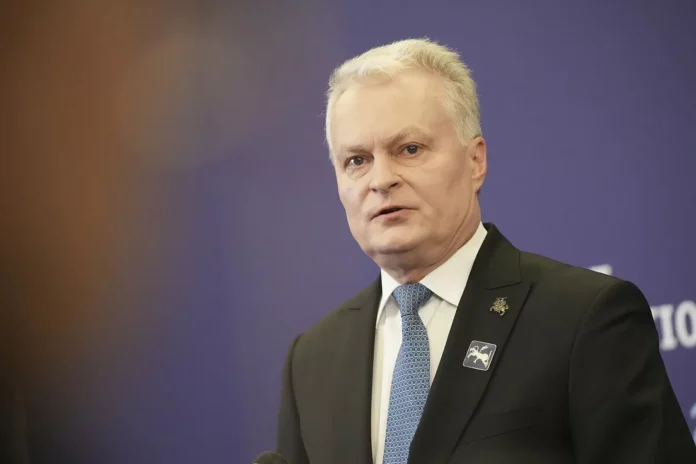Lithuanian President Gitanas Nauseda has recently criticized European allies and stated that it is still too early for Ukraine to begin negotiations with the Russian Federation. This statement came as a surprise to many, as Ukraine has been actively seeking support from its European partners in its ongoing conflict with Russia.
Nauseda’s criticism came during a press conference in Brussels, where he discussed the ongoing conflict in Ukraine and the role of the European Union in finding a resolution. The Lithuanian president expressed his disappointment with the lack of action and solidarity from some EU member states in supporting Ukraine. He also stressed that the EU should not rush into negotiations with Russia, as it may weaken Ukraine’s position at the negotiating table.
This stance by Nauseda has stirred controversy and sparked debate among European leaders and analysts. Some have praised his boldness in speaking out against EU inaction, while others have criticized him for potentially hindering the progress of peace talks.
In his statement, Nauseda also highlighted the importance of maintaining pressure on Russia and holding them accountable for their actions in Ukraine. He stated that Russia must fully comply with the Minsk agreements and withdraw its troops and weapons from the Ukrainian territory before any negotiations can take place.
The Lithuanian president’s comments come at a crucial time, as Ukrainian President Volodymyr Zelensky has recently expressed his willingness to engage in direct talks with Russian President Vladimir Putin. Zelensky has also called on the EU to play a more active role in mediating the conflict and providing support to Ukraine.
However, Nauseda’s stance has been met with resistance from some EU member states, who continue to advocate for a more diplomatic approach in resolving the conflict. They argue that engaging in dialogue with Russia is the only way to achieve a peaceful resolution.
Despite the differing opinions, what is clear is that the conflict in Ukraine remains a pressing issue for both the EU and the international community. The ongoing tensions and violence have resulted in thousands of casualties and displaced millions of civilians. It is imperative for all parties involved to work towards finding a lasting solution and bringing an end to this tragic conflict.
In conclusion, President Nauseda’s criticism of European allies and his stance against early negotiations with Russia may have sparked controversy, but it serves as a reminder that the situation in Ukraine requires urgent attention and action. It is crucial for the EU to stand in solidarity with Ukraine and continue to put pressure on Russia to comply with international agreements. Only then can we hope for a peaceful resolution to this ongoing conflict.

